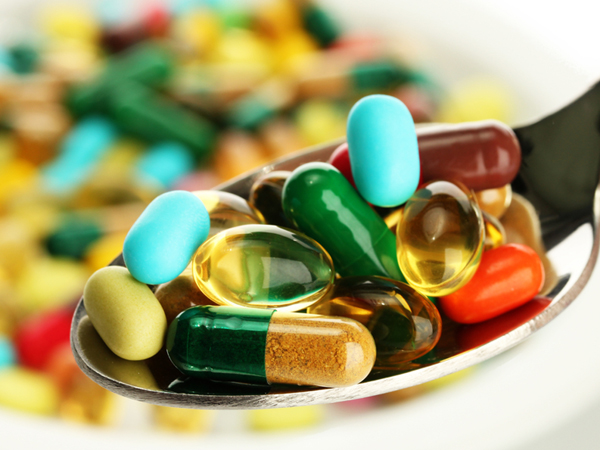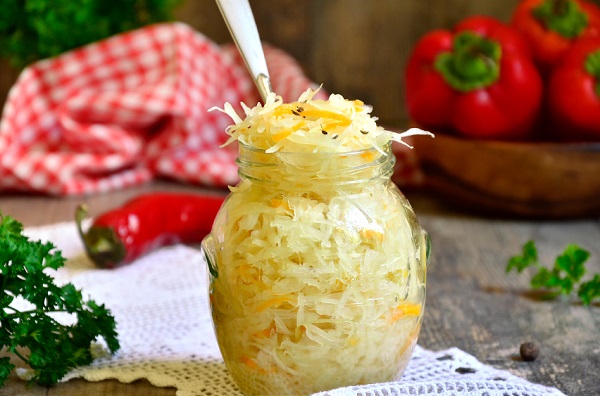ONE of the most important factor in maintaining a strong immune system? is Maintaining a healthy gut!
Obviously, problems like gas, bloating, constipation, diarrhea, and intestinal discomfort arise from an unhealthy gut.
But the gut, and especially the bacteria that create a healthy environment, provides your primary defense against diseases of all kinds.
As incredible as it sounds, your gut is home to more than 100 trillion bacteria that represent over 400 known species. But among those bacteria, you'll find the "good, bad, and the ugly."
The good bacteria perform a wide variety of functions crucial to our well-being and are responsible for 75% of our immune system.

Bad bacteria create havoc in our bodies, emit harmful chemicals, and throw our immune system out of kilter. Some bad bacteria like salmonella and E. coli can even be life-threatening.
Below are some ways that you can promote a healthy culture of flora in your gut, while avoiding the invasion of the bad bacteria.

Prescription and OTC drugs can also be hard on your gut. Whenever possible avoid antibiotics (they tend to kill both the good with the bad bacteria), acid-blockers, and anti-inflammatories.
Too much alcohol also harms the flora in your gut. In general, think of your gut like a garden that you want to nurture and feed properly. Avoid those things that would degrade its integrity and turn it into more of a toxic swamp!
2. Eat whole foods containing natural fiber. Fiber is plant-based and cannot be digested by your body. But fiber is crucial for gut health, acting as a probiotic feeding the good bacteria.
Foods high in fiber include: whole grains, nuts, seeds, vegetables, berries and fruits. Conversely, processed foods contain little fiber and are usually high in sugar.
3. Eat fermented foods. Before refrigeration and all the preservatives found in foods today, our ancestors relied on a process called lacto-fermentation to preserve foods.
When a food goes through the process of lacto-fermentation, bacteria feed on the sugars and starches in that food and create lactic acid. This results in foods rich inenzymes, B-vitamins, Omega-3 fatty acids, and a variety of probiotics. Real, cultured foods like yogurt, sauerkraut, kefir, and kombucha all go through lacto- fermentation.

These foods provide your best resource for probiotics. If you find you cannot eat these foods often enough, you may wish to supplement with a probiotic.
4. Reduce stress. One of the first places we feel the impact of stress is in our gut. Stress chemicals like cortisol and adrenalin suppress the immune system and negatively influence gastric secretions.
If you're feeling stressed, take steps to simplify your lifestyle and especially tend to your relationships. Relational-induced stress is one of the most prevalent and caustic of all stresses.
Extend forgiveness to those who have harmed you and pursue peace with the people in your life.

Obviously, problems like gas, bloating, constipation, diarrhea, and intestinal discomfort arise from an unhealthy gut.
But the gut, and especially the bacteria that create a healthy environment, provides your primary defense against diseases of all kinds.
As incredible as it sounds, your gut is home to more than 100 trillion bacteria that represent over 400 known species. But among those bacteria, you'll find the "good, bad, and the ugly."
The good bacteria perform a wide variety of functions crucial to our well-being and are responsible for 75% of our immune system.

Bad bacteria create havoc in our bodies, emit harmful chemicals, and throw our immune system out of kilter. Some bad bacteria like salmonella and E. coli can even be life-threatening.
Below are some ways that you can promote a healthy culture of flora in your gut, while avoiding the invasion of the bad bacteria.
4 Things You Can Do to Optimize Healthy Flora in Your Gut
1. Avoid things that harm healthy flora. Foods high in sugar and trans-fats fall into this category. They promote unhealthy bacteria and deny the good bacteria the nutrition they need.

Prescription and OTC drugs can also be hard on your gut. Whenever possible avoid antibiotics (they tend to kill both the good with the bad bacteria), acid-blockers, and anti-inflammatories.
Too much alcohol also harms the flora in your gut. In general, think of your gut like a garden that you want to nurture and feed properly. Avoid those things that would degrade its integrity and turn it into more of a toxic swamp!
2. Eat whole foods containing natural fiber. Fiber is plant-based and cannot be digested by your body. But fiber is crucial for gut health, acting as a probiotic feeding the good bacteria.
Foods high in fiber include: whole grains, nuts, seeds, vegetables, berries and fruits. Conversely, processed foods contain little fiber and are usually high in sugar.
3. Eat fermented foods. Before refrigeration and all the preservatives found in foods today, our ancestors relied on a process called lacto-fermentation to preserve foods.
When a food goes through the process of lacto-fermentation, bacteria feed on the sugars and starches in that food and create lactic acid. This results in foods rich inenzymes, B-vitamins, Omega-3 fatty acids, and a variety of probiotics. Real, cultured foods like yogurt, sauerkraut, kefir, and kombucha all go through lacto- fermentation.

These foods provide your best resource for probiotics. If you find you cannot eat these foods often enough, you may wish to supplement with a probiotic.
4. Reduce stress. One of the first places we feel the impact of stress is in our gut. Stress chemicals like cortisol and adrenalin suppress the immune system and negatively influence gastric secretions.
If you're feeling stressed, take steps to simplify your lifestyle and especially tend to your relationships. Relational-induced stress is one of the most prevalent and caustic of all stresses.
Extend forgiveness to those who have harmed you and pursue peace with the people in your life.

